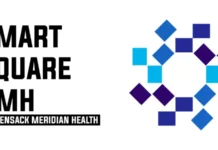Every morning you turn on the tap and use the water without thinking about it. It may be to make a cup of coffee, prepare your oatmeal, or simply to brush your teeth. It’s rare to think about where the water comes from or whether it’s safe to drink.
But, did you know that the average Australian household uses about 340 liters of water a day and that it’s not as safe as you think it is?
That’s the bottom line and the reason why you should be considering the best water filters Melbourne. Despite the treatment process, there is no guarantee that tap water is safe to drink.
The Treatment Process
As part of the water cycle, it rains. This water runs through and over the land to get to streams, rivers, and reservoirs. During this process, the water can pick up a lot of contaminants.
That’s why the water is treated at special plants.
The standard treatment process involves filtration to remove debris and large particles from the water. The water is treated with aluminum sulfate to remove impurities and an organic polymer is added to collect additional particles.
In addition, the water is passed through an activated carbon filter, this effectively removes organic compounds that affect taste and odor. The water is then balanced to ensure it is pH neutral before chlorine is added to kill bacteria. In some cases, fluoride is also added as this strengthens teeth and bones.
The water then meets Australian water standards and can be sent to your house.
The Issues With Tap Water
The above process sounds pretty impressive and, along with regular testing, ensures the water leaving the treatment center is safe to drink.
But, that doesn’t mean the water coming out of your tap is.
Water travels for hundreds of miles through pipes between the treatment plant and your home. Most of these pipes are buried making it impossible to regularly visually inspect them. This means that tiny holes in the pipes will go unnoticed. They will cause a slight water leakage. But, they will also allow bacteria into the water.
In addition, contaminants in the soil can leach through the piping and into the water supply. Alongside this debris is picked up by the water from the inside of the pipes. If you were to test the water coming out of your tap it would probably be a different quality to the water leaving the treatment plant.
The bacteria that flourish in water are generally bad for your health. These include E.coi which can even cause death. That’s why water filters are becoming more popular as people protect themselves from potential infections and contaminants in the water.
It has happened before and is likely to happen again. The problem is there are too many variables that can’t be controlled. The water treatment plant does the best job possible but it can’t be guaranteed to be safe at your home.
Further Complications
Additional issues exist in that chemicals are added to the water, specifically chlorine and fluoride.
While they serve a useful purpose it should be noted that chlorine is the same substance that is used in nerve gas. It has a detrimental effect on the respiratory system. This can cause issues for people at home, especially those with allergies.
It’s worth noting that the issues can occur when you shower and the chlorinated water touches your skin. This opens pores and increases the amount of chlorine entering your body, potentially creating health issues.
Fluoride is added as research suggests it improves bone and teeth strength. This is a good thing but more recent research shows a link between fluoride consumption and an increased risk of cancer. Although more research is needed it’s enough to be concerning.
In short, the tap water you drink is not as good as you think it is.
The Solution
As mentioned, an increasing number of houses are using water filters to purify the water and make it safe before they drink it.
You can get single tap filters that fit into the pipes and clean the water to a single tap. This is acceptable for most people although you have to use the dedicated tap for drinking water. However, if you suffer from asthma or allergies you may prefer to invest in a whole house system. This treats all the water and reduces your absorption of chlorine, even when showering.
You’ll need to speak to a professional regarding the preferred option and whether to use an activated carbon filter or reverse osmosis. You can even use both depending on your personal situation.
One thing is certain. The water coming out of your tap cannot be guaranteed to be safe to be drunk. Adding a filter ensures it is safe and gives you peace of mind.
Learn More : How to Distill Water at Home: 6 Easy Steps



































































![Avielle Janelle Hernandez Net Worth | How Old is She? [2020 Update] Avielle Janelle Hernandez](https://www.apzomedia.com/wp-content/uploads/2020/11/Avielle-Janelle-Hernandez-100x70.jpg)